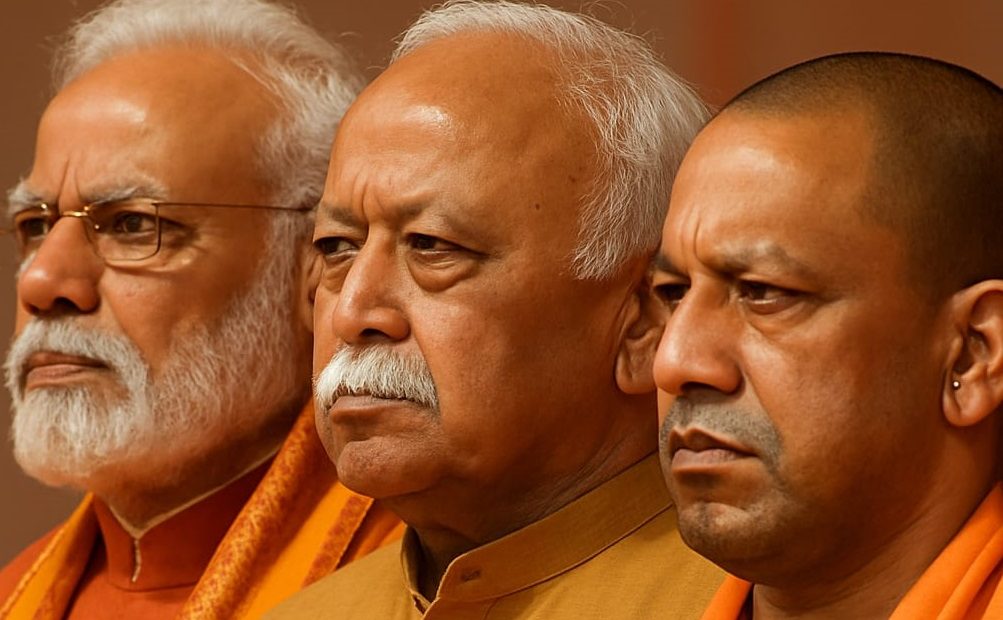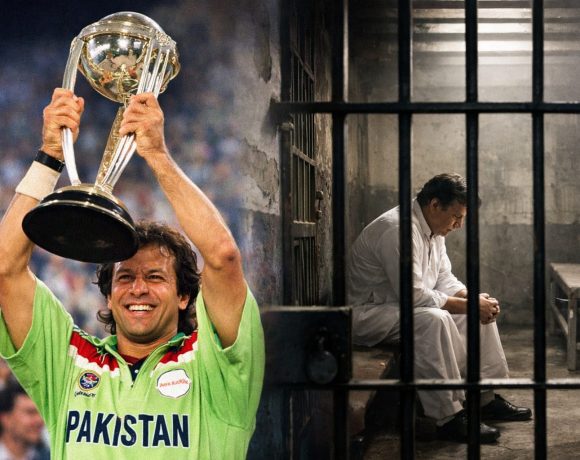
BJP And RSS Built The Hindu Narrative. Now Can They Build The Indian Century?
For the first time in independent India, Hindu consciousness is not whispered, apologised for or tucked behind constitutional jargon. It stands tall, saffron, sovereign, and utterly unembarrassed. The Dharma Dhwajarohan Utsav in Ayodhya, with Narendra Modi, Mohan Bhagwat and Yogi Adityanath sharing the same stage, was not just a ceremony. It was a declaration.
A visual endnote to a five-hundred-year civilisational struggle, a moment when millions of Hindus felt a sense of restoration that generations before them only dreamed of. In a political landscape that has usually depended on compromise or coy positioning, this event showed something else entirely: the cultural project is complete. The emotional century that India needed, the identity century that the Hindu community waited for, has been delivered.
And it must be acknowledged — the RSS and BJP delivered it brilliantly. One gave the ideological backbone, the other the political muscle, and together they executed the most successful cultural transformation in modern Indian history. The shift is not minor. Hindu identity is no longer reactionary, ashamed, or defensive. It is confident, assertive and capable of shaping national discourse. Hindutva is neither fringe nor rhetorical; it is mainstream, institutional and generational. This synthesis is historic, and to deny its force is to pretend the last decade did not happen.
But cultural victories, however profound, are not the end of a nation’s journey. They are the opening chapter. And this is where the hard truth begins.
The Ram Mandir is complete. The symbolic battles have been fought. The Hindu narrative has won its space, its voice and its legitimacy. Now India must ask itself a larger question: what next?
Because the world outside does not pause for our cultural milestones. China does not slow its aircraft carriers because we are emotionally fulfilled. The US does not adjust its tariff walls because Ayodhya feels complete. Europe does not soften its immigration hardening, Pakistan does not stabilise, the Middle East does not calm, and the Indian Ocean does not demilitarise simply because we have reasserted our civilisation. Identity gives internal strength, yes. But external strength requires something else entirely — capability.
This is where the real test of India begins. And this is where BJP and RSS, after triumphing in the cultural realm, must reorient toward the structural realm. Identity politics delivered political dominance, but political dominance cannot deliver the Indian Century by itself. It requires governance architecture, economic depth, scientific ambition and state capacity — areas where India still lags, and where symbolism offers no shortcuts.
The uncomfortable truth is that Hindutva cannot build semiconductors, cannot raise productivity, cannot reform the bureaucracy, cannot modernise the military, cannot upgrade universities, and cannot generate high-skill employment. These require the harder, less glamorous work that no rally speech can ignite. India needs institutional reform, not just emotional reform. It needs economic competitiveness, not merely ideological clarity. It needs a 21st-century state, not a 20th-century administrative skeleton.
RSS–BJP unity is powerful, but unity alone does not transform the quality of governance. The movement mode must evolve into state-building mode. For years, the Hindu community needed cultural assertion to rediscover confidence. Now India needs strategic assertion to secure its future.
The question before the country is simple: can the BJP–RSS ecosystem, having successfully restored cultural pride, now build national capacity with the same discipline? Can the political movement that delivered Ayodhya also deliver world-class education? Can the ideological force that revived civilisational memory now build technological supremacy? Can the machinery that organised identity now organise innovation?
This is not a dismissal of the cultural achievement. Far from it. The Hindu revival was necessary, overdue, and justified. An ancient civilisation deserves to stand tall in the modern world. But civilisation is not a substitute for capability. Emotion cannot replace institutions. Pride must now become productivity. Saffron confidence must now direct itself to statecraft, reform and excellence.
India stands at a crossroads. The Hindu moment is here — undeniably, triumphantly, emotionally. But the Indian Century will not come from identity alone. It will come from how quickly we transition from cultural consolidation to national modernisation.
Ayodhya gave India its emotional completion. Now India must give itself its strategic beginning.


















